Caution and Hope for Military Kids
When TCK Training released our white paper, Caution and Hope: The Prevalence of Adverse Childhood Experiences in Globally Mobile Third Culture Kids, we knew we were only beginning to scratch the surface of what we could learn from the data we had collected from 1,904 individuals who completed our 2021 survey on developmental trauma in globally mobile Third Culture Kids. This is the first in a series of blog posts that will look a little deeper at certain sub-groups represented in the data.
Caution and Hope for Military Kids
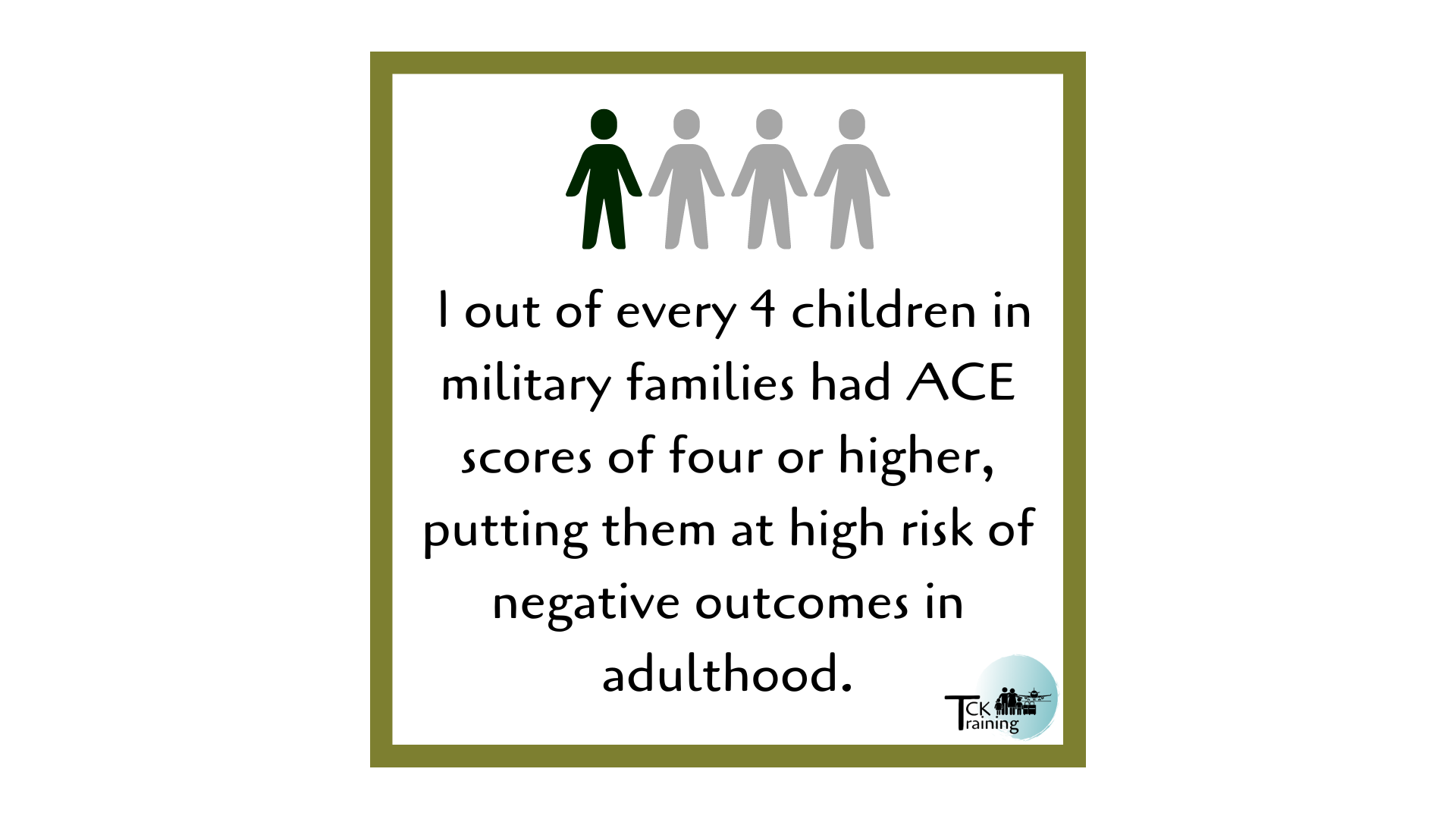
Age
The military kids in our sample were older on average than other TCKs we surveyed. While in most sectors, nearly half the respondents were born after 1990, among military kids over half were born before 1970.
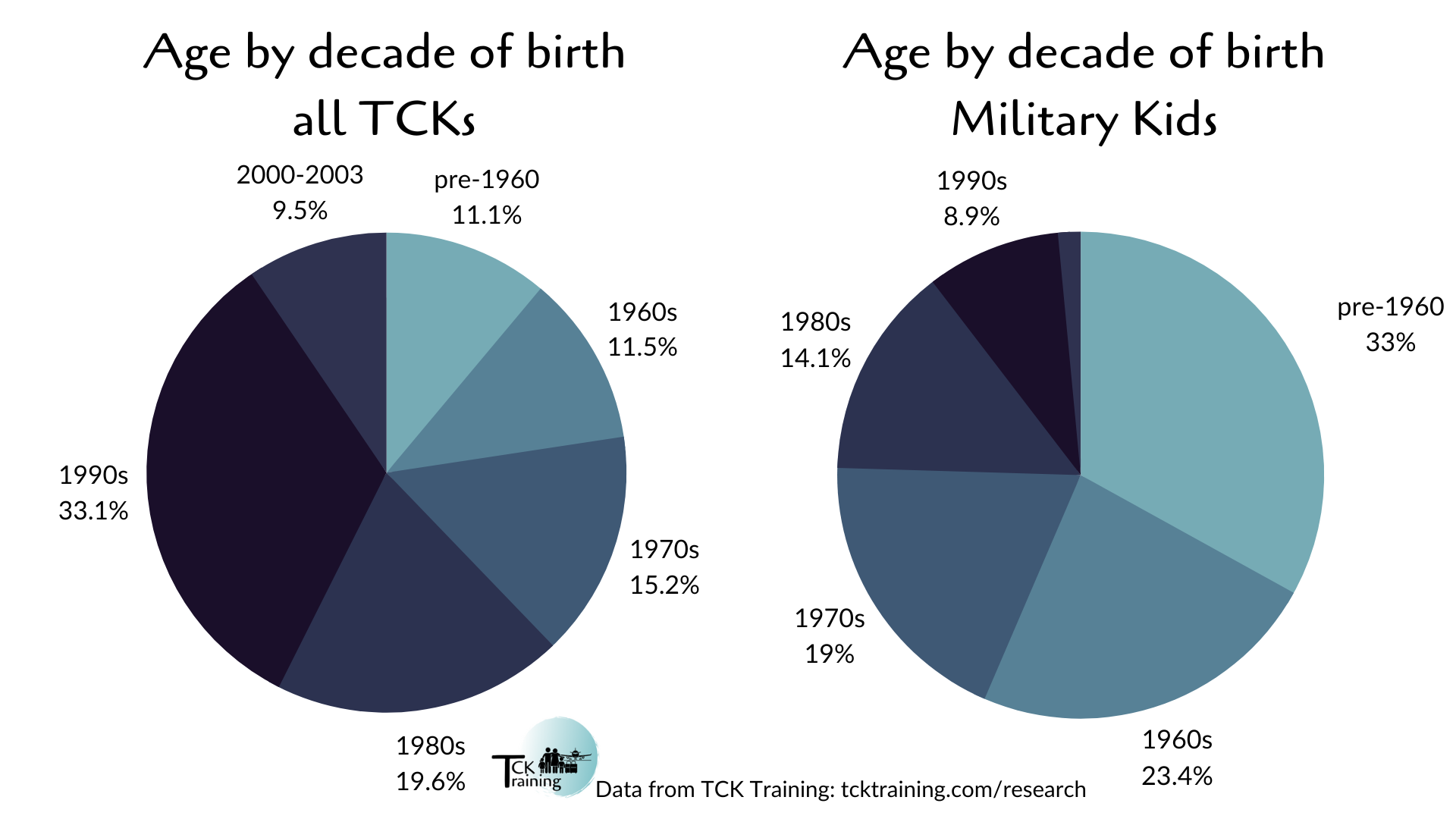
Mobility
It probably comes as no surprise to learn that the Military Kids we surveyed experienced high mobility throughout childhood. They were more likely to move locations, and more likely to move houses. They were slightly less likely, however, to live in more than two countries, and half as likely to live in more than three countries. These percentages were almost identical in both the older and younger generations of military kids.
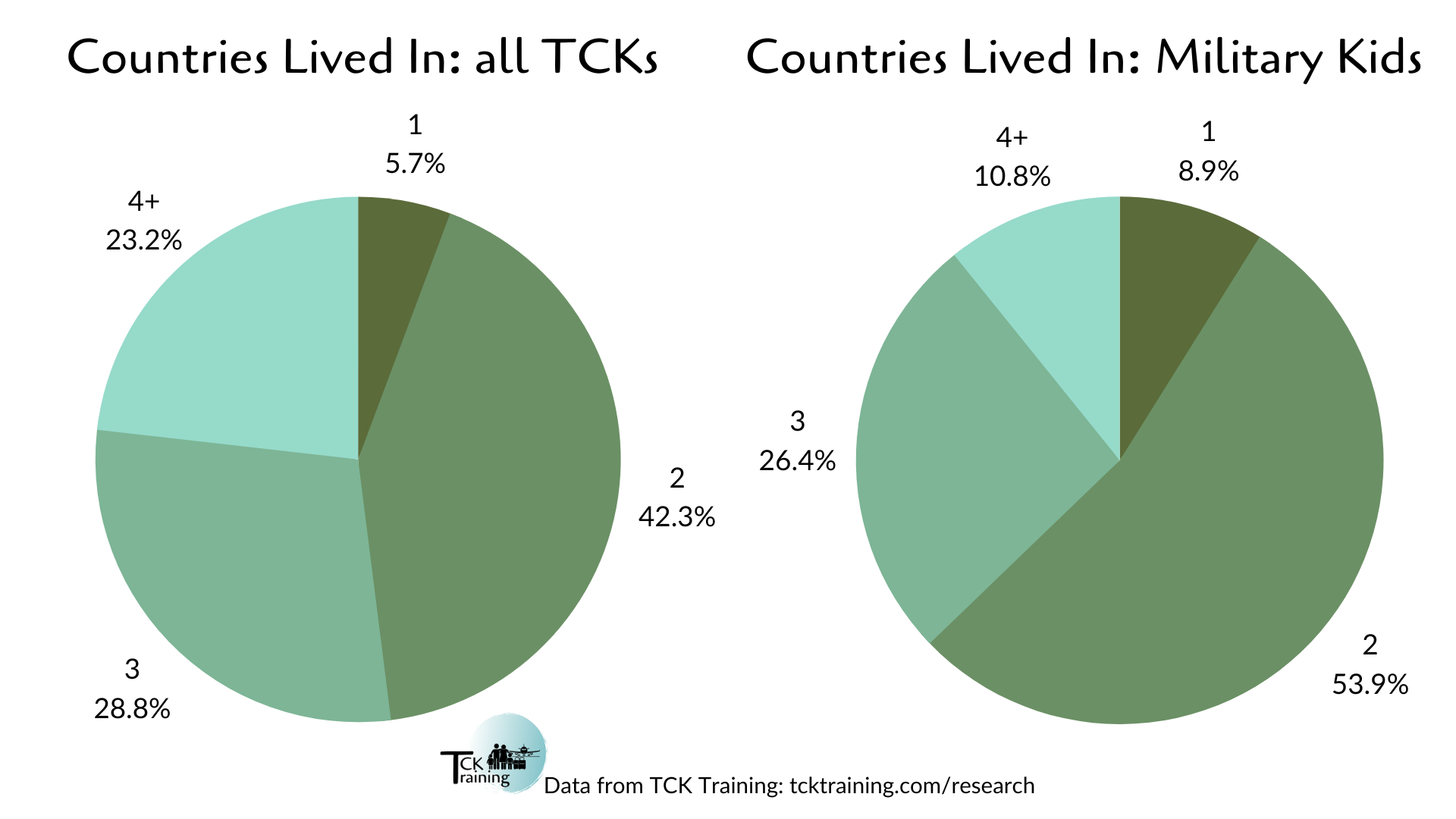
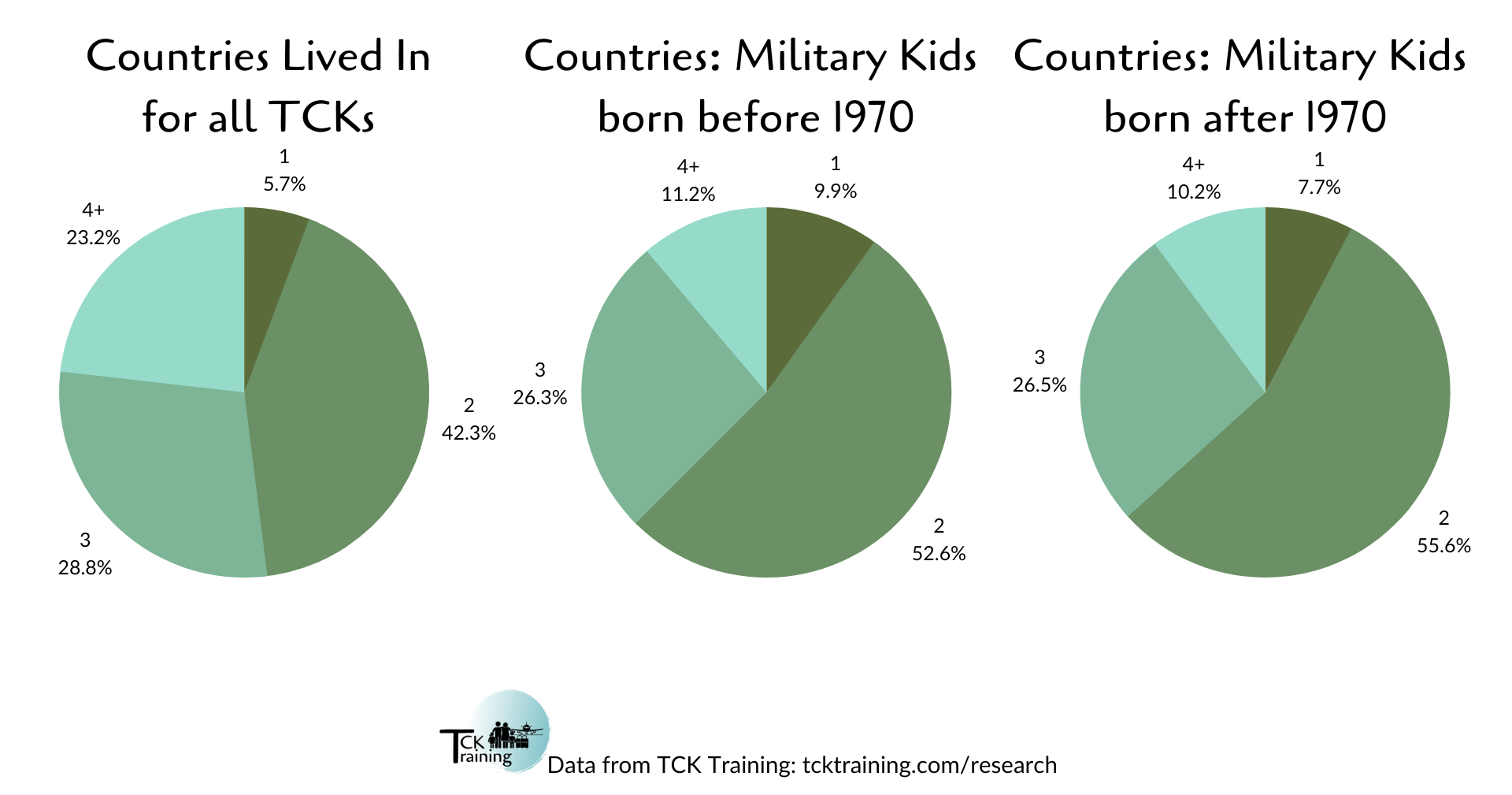
Military kids moved locations far more often than other TCKs in our sample. Two-thirds of military kids moved location at least eight times before turning 18, nearly double the percentage of TCKs overall. 84% of military kids moved at least six times, compared to 58% of TCKs generally.
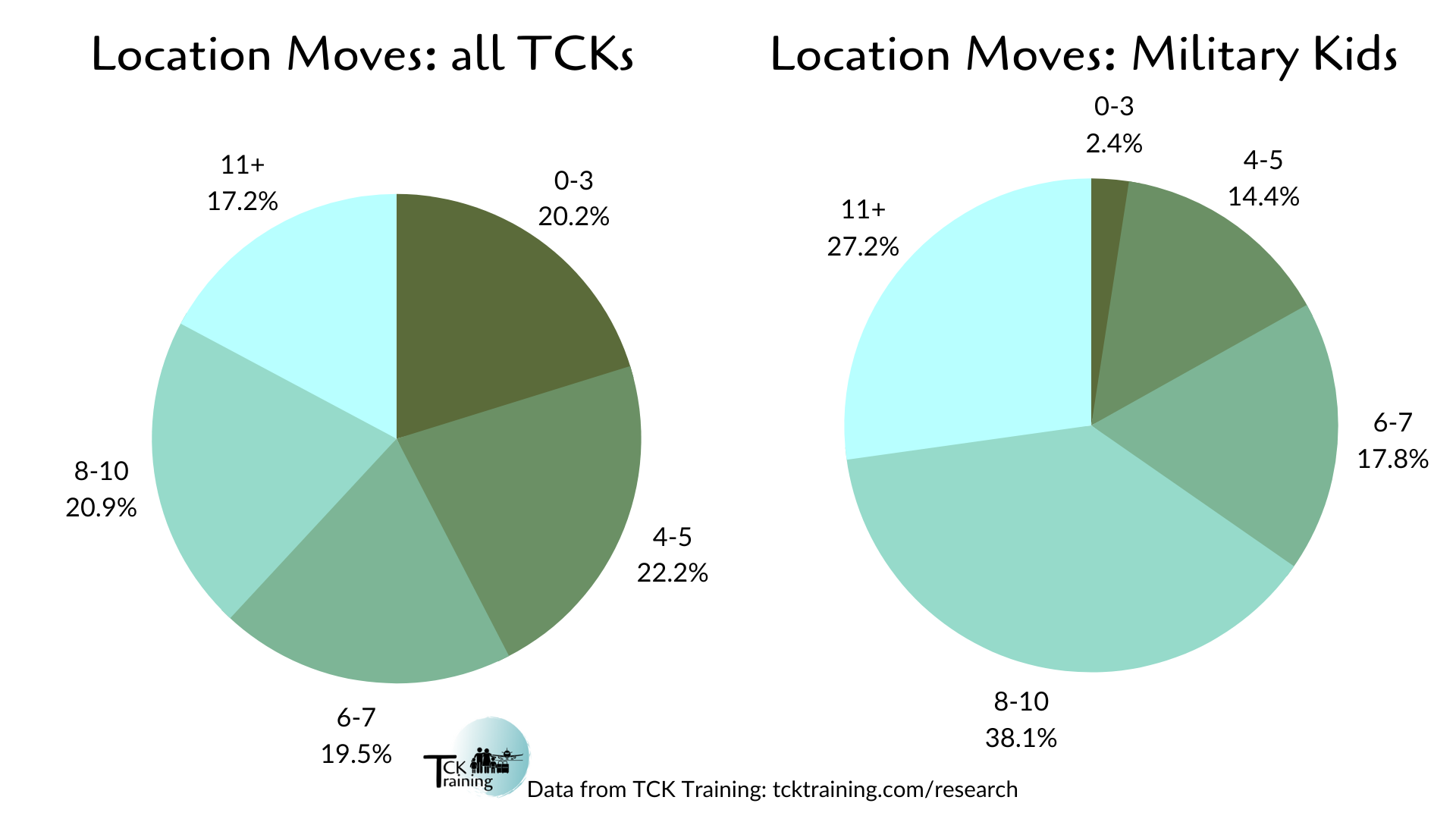
When location mobility is divided by age, we see a decrease in the high mobility of military kids. 68% of the older generation moved at least eight times, compared to only 47% of the younger. 90% of older military kids moved at least six times, compared to 78% of the younger generation. Younger military kids experienced higher mobility than other TCKs, but not as extreme as the older generation of military kids.
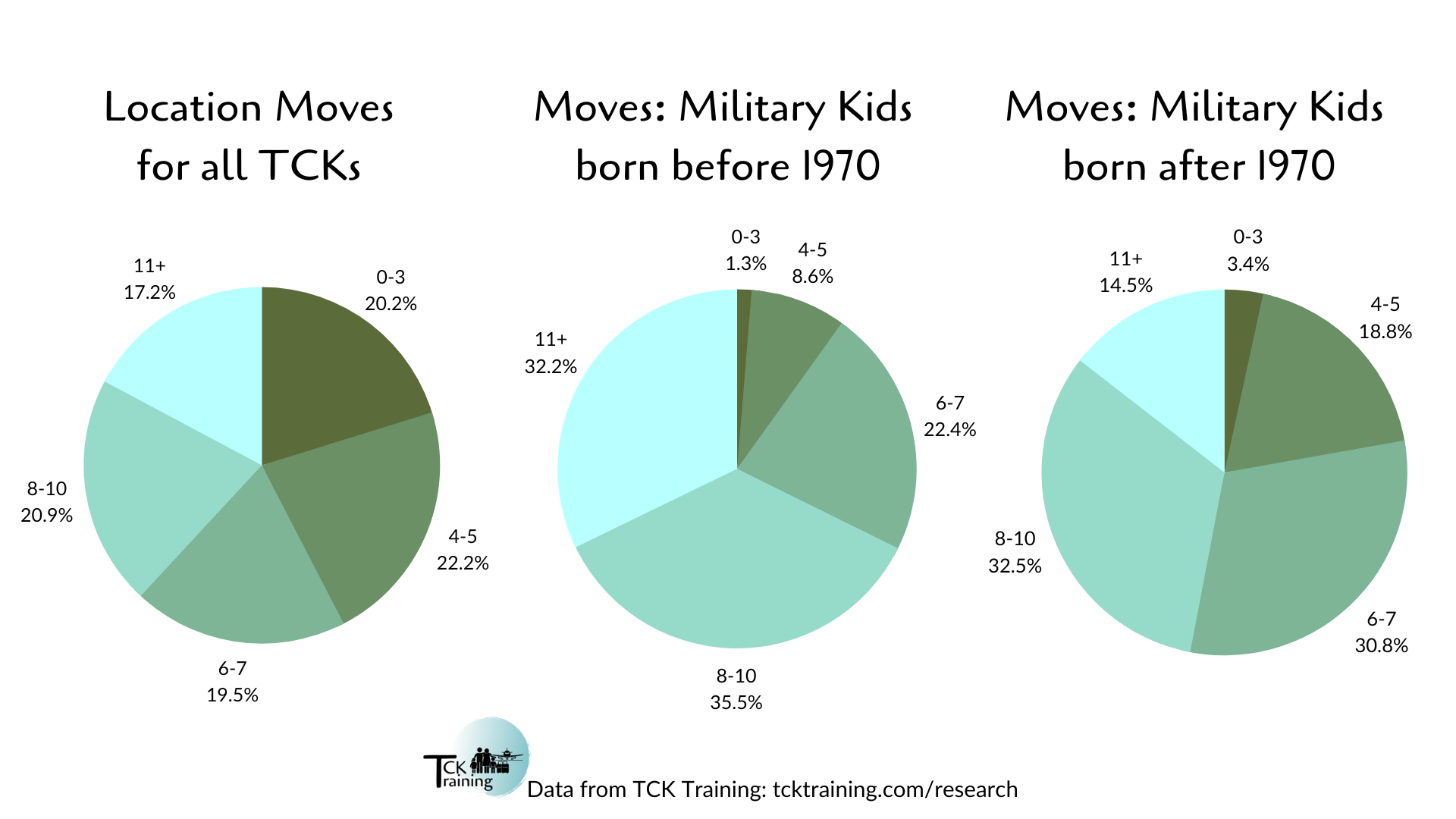
A similar pattern appears when we look at the number of house moves before age 18. Only 3% of military kids had moved house four or fewer times during childhood, compared to 15% of TCKs generally. Half of TCKs had moved more than eight times, compared to two-thirds of military kids.
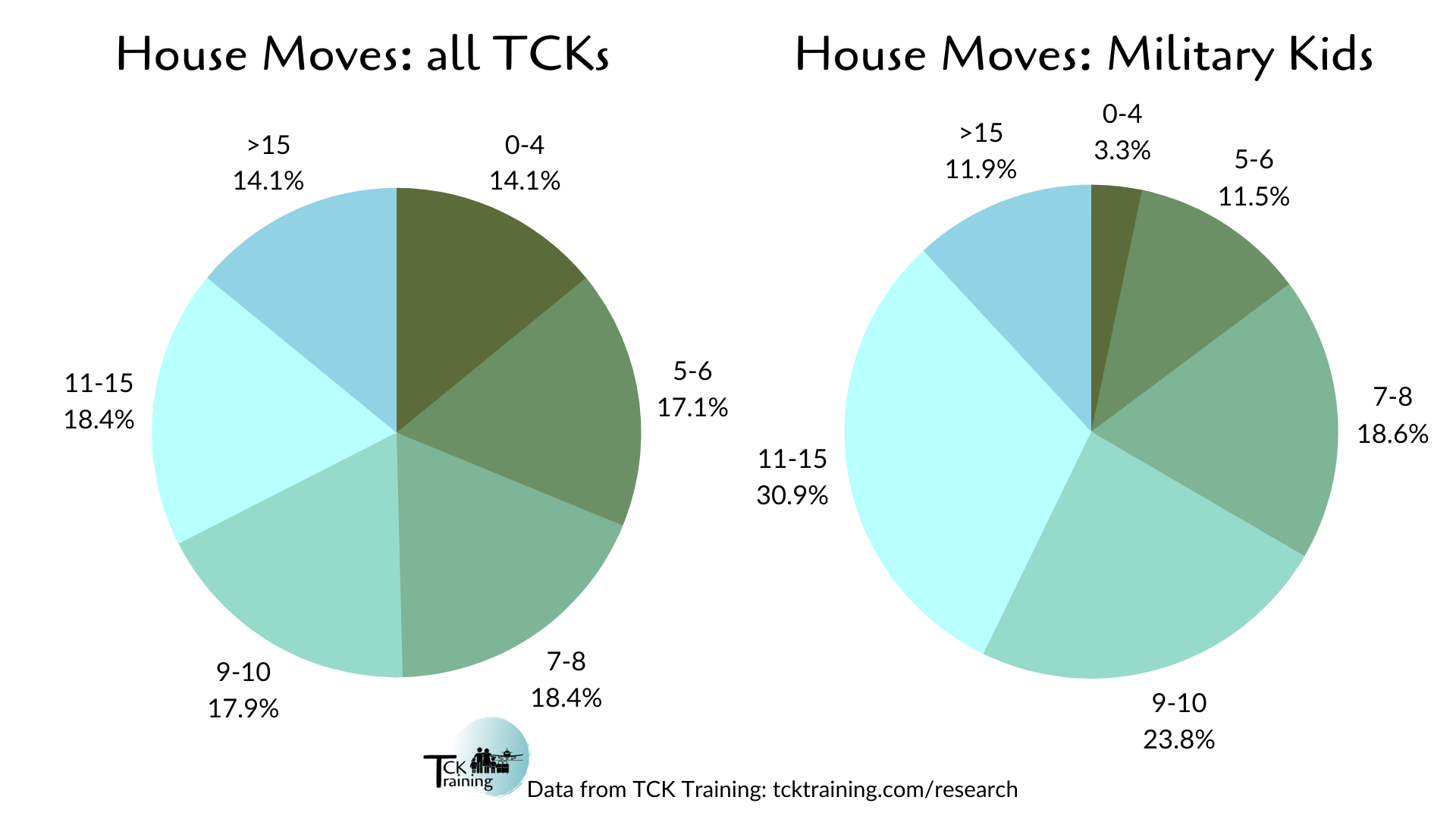
Younger military kids were also less impacted by house mobility than older military kids, though the difference was less striking than with location moves.
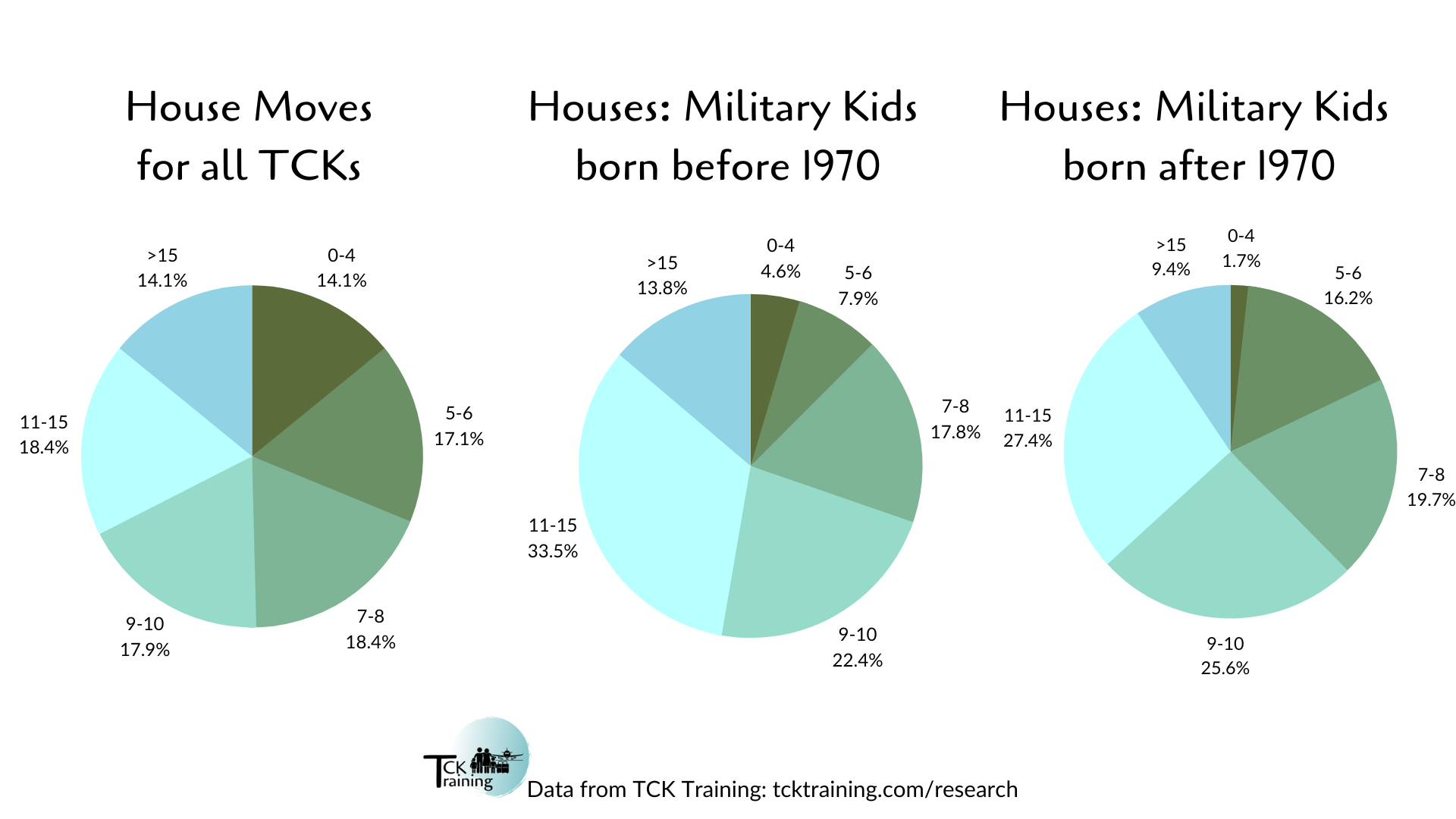
The Impact of Mobility
The trend toward fewer military kids experiencing extremely high mobility is an encouraging one, even in a small sample like this, because another finding of our survey was that high mobility was clearly correlated with high ACE scores.
The ACE score is a method of quantifying Adverse Childhood Experiences that occurred in an individual’s life before age 18. Decades of research has seen a connection between a score of four or higher with various negative health outcomes. (We discuss this in more detail in Caution and Hope.) The ACE scores of military kids in general were higher than the ACE scores of TCKs overall, regardless of age. There was a slight decrease from the older group to the younger group, however.
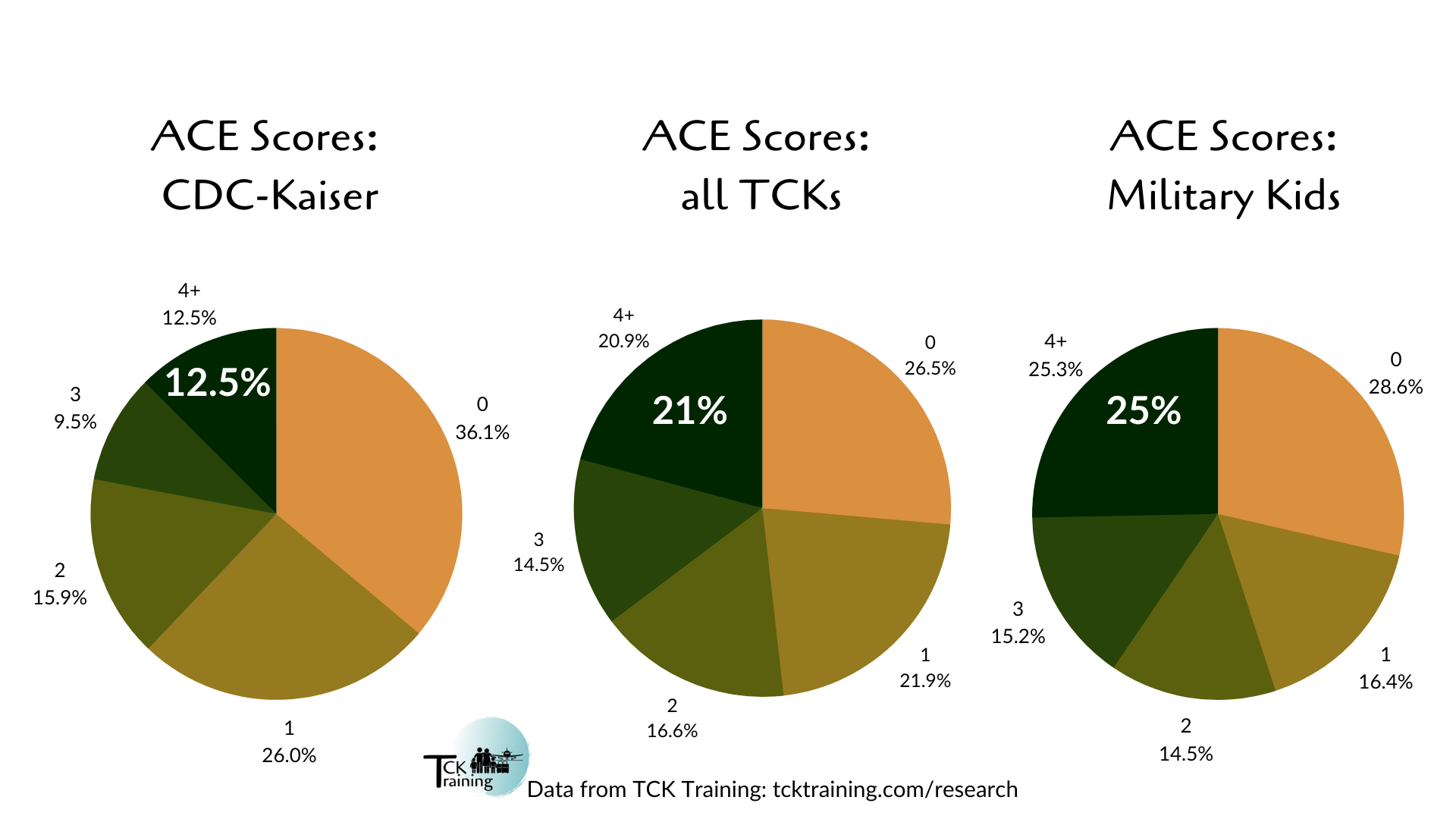
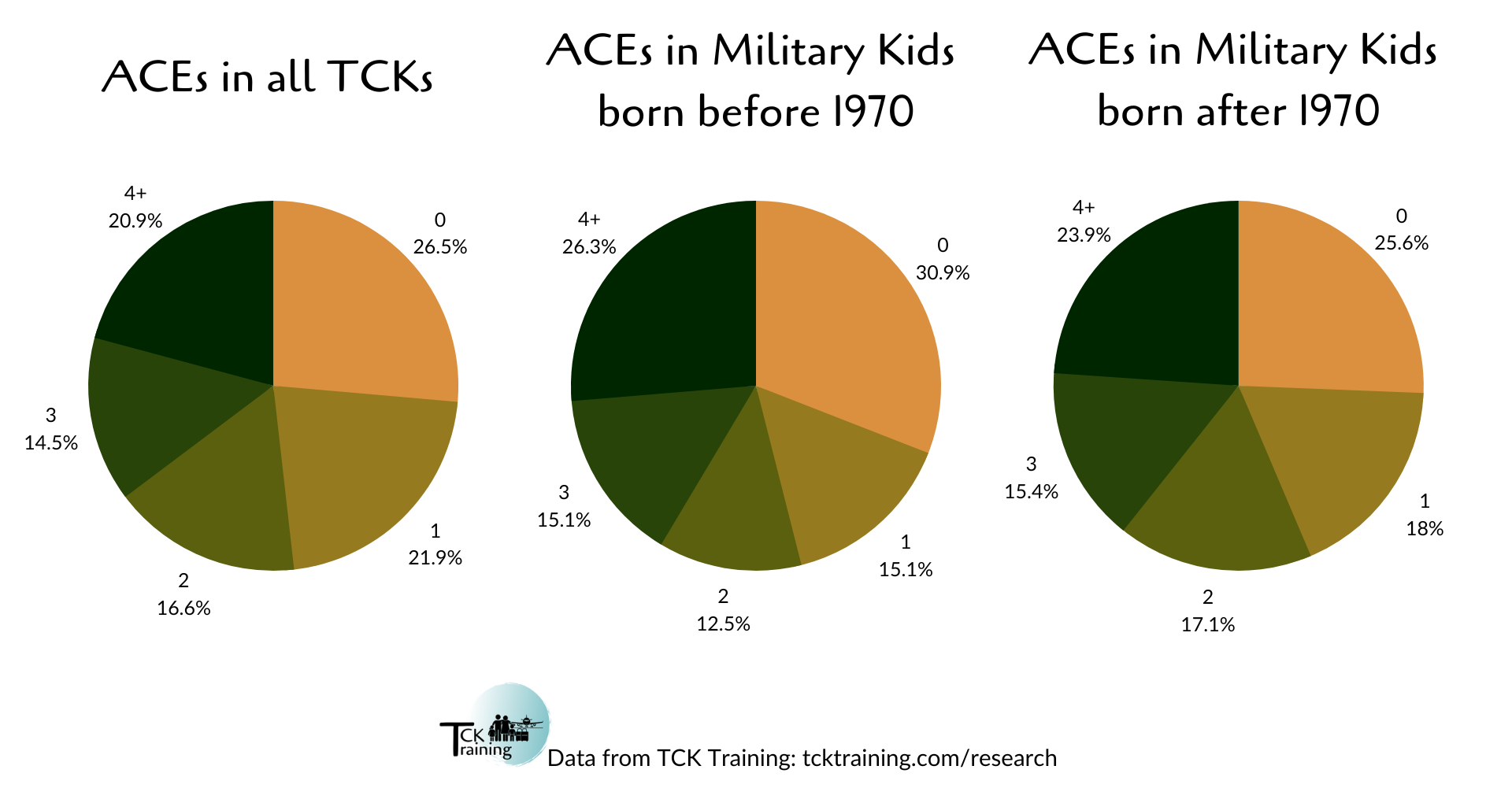
We discovered in our research that TCKs who experienced high mobility were significantly more likely to have a 4+ ACE score. A third of TCKs who moved location >10 times or moved house >15 times had these high-risk ACE scores. This group has higher risk factors for a wide range of negative behavioral, psychological, and physical health outcomes - including risk of cancer, autoimmune conditions, addiction, and depression.
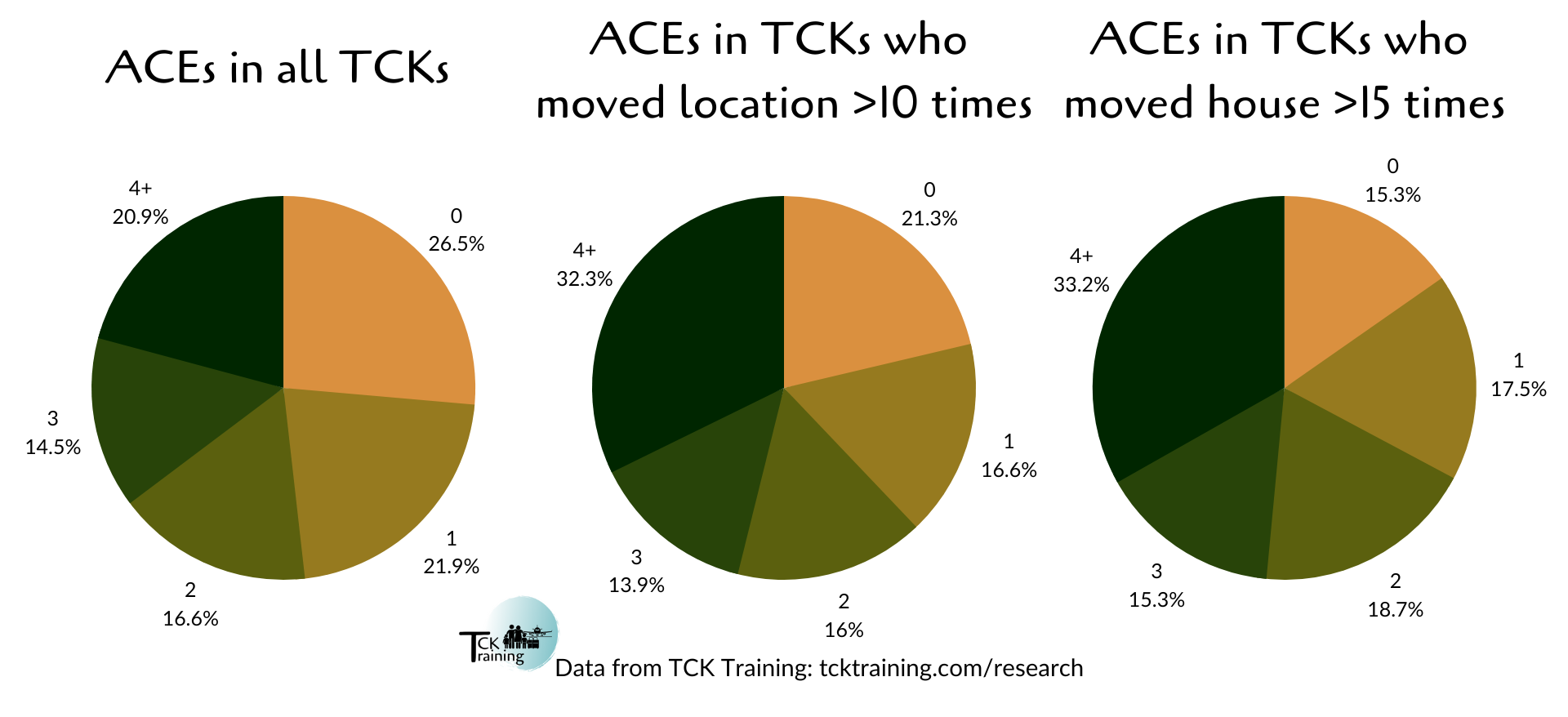
The Power of PCEs
Those risk factors are not the end of the story, however. Having a high ACE score does not guarantee a bad outcome, and there are ways to lower an individual’s risk - particularly with preventive care during childhood. In Caution and Hope we introduced both the HOPE framework and Positive Childhood Experiences (PCEs). Both are backed by extensive research demonstrating the power of preventive care in reducing the risk that a high ACE score will lead to negative outcomes in adulthood.
Caution and Hope:
The Prevalence of Adverse Childhood Experiences in Globally Mobile Third Culture Kids
Knowing that the high mobility military kids experience puts them at risk is helpful, because we also know that deliberate implementation of proven strategies backed by research will buffer them from those risks. Much can be done to equip parents and extended family members as well as to educate community leaders in how to provide effective preventive care for the military kids in their care. That’s why we at TCK Training do what we do: to promote lifelong thriving for those impacted by mobility and cultural transition.
Check out this list of Related Blog Posts, or click through the tabs to find recommended resources according to whether you're a caregiver or parent of missionary kids, or you're an adult missionary kid yourself!
For Caregivers of Military TCKs:
Caregivers, as you read these statistics you may be feeling both motivation that there are needs you want to fill...and overwhelm not knowing how or where to start. You are not alone.
We've personally experienced how nerve wracking it can be to have the big and important role of caring for military kids ahead of you, but not feel equipped for it. Which is why we do what we do, we want you to experience the relief and confidence of being equipped and supported!
Get equipped with certifications and trainings
- Pathways Certification (for those in leadership and program development)
- Groundwork Certification (for those working on the ground with MK families
- Unstacking Certification
Other resources
- FREE Safe Space Responses (miniseries)
- Raising Thriving Military Kids Abroad (workshop)
- Risk Prevention for Highly-Mobile Families (workshop)
- Living in Limbo (workshop) ...or get access to all three workshops plus 80+ more AND monthly group coaching with a Caregiver membership
For Parents of Military TCKs
Reading these statistics can be difficult. We know how much you love your TCKs and you want what's best for them. So please know there is hope!
We do this research because "when we know better we can do better" (Tanya Crossman) and we believe that together we can raise up a generation of healthy TCKs.
We design our resources to equip parents and caregivers to support TCKs according to the needs found in our research! If you're not sure where to start, here's a few we would recommend:
- FREE Safe Space Responses (miniseries)
- Raising Thriving Military Kids Abroad (workshop)
- Risk Prevention for Highly-Mobile Families (workshop)
- Living in Limbo (workshop) ...or get access to both workshops plus 50+ more AND monthly group coaching with a Parent membership
For Adult Military Kids
If you resonated with a lot of these statistics, we want you to know that you're not alone, and we don't want you to carry this alone!
Here's some resources we would recommend specifically for you:
- Unstacking Your Grief Tower (book)
- Unstacking Your Grief Tower (self-guided course)
- Unstacking Sessions (personalized coaching)
Recorded Workshops
- Adult TCKs: Strengths & Challenges
- The Art of Settling Well
- Adult TCKs: How to Talk to Your Parents about Childhood Trauma
...or get access to all three plus 20+ more with an ATCK membership




